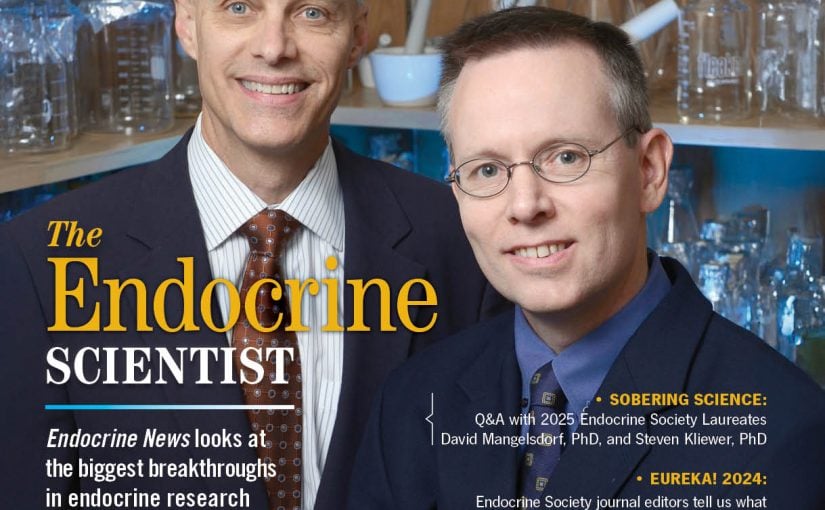The National Diabetes Prevention Program (NDPP) will soon ensure more people at risk for diabetes have access to programs to improve their health. A relationship between The Endocrine Society and the American Medical Association’s (AMA) House of Delegates (HOD) allows the Society to advocate for policies that will benefit endocrinologists and their patients. Last November, AMA HOD unanimously adopted a resolution introduced by the Society calling for an expansion of NDPP.
The NDPP, a primary prevention program based on National Institutes of Health-sponsored research, can reduce a participant’s chances of developing type 2 diabetes by 58 percent (average) through lifestyle and behavioral changes. Primarily provided through YMCAs across the country and covered by some major health insurers, NDPP was authorized through a provision in the Affordable Care Act, which required the U.S. Centers for Disease Control and Prevention (CDC) to establish rules and standards for participating organizations.
The resolution requires the AMA to:
• Support physician-prescribed evidence-based diabetes prevention programs;
• Support the expansion of the NDPP to more CDC-certifi ed sites across the country; and
• Push for the program to become a Medicare benefit and be covered by all private insurers.
The Society’s AMA HOD delegates—Susan Sherman, MD; Robert Vigersky, MD; Amanda Bell, MD; Daniel Spratt, MD, and Vineeth Mohan, MD—worked with delegates of the American Association of Clinical Endocrinologists (AACE) and American College of Preventive Medicine (ACPM), who co-sponsored the resolution, to ensure passage.
The Society will continue to work with its numerous partners, including the AMA, on this effort to ensure that those at risk for developing diabetes have access to the program.
Additional Resolutions
The Society also co-sponsored resolutions introduced by the ACPM and the American College of Physicians (ACP), both of which were adopted by the HOD. Th e ACPM’s resolution called on the AMA to oppose the use of the Prevention and Public Health Fund for deficit reduction funding and to support its use solely for programs that advance prevention and public health initiatives. Th is fund, which is an important source of funding for programs such as the NDPP, has been targeted as a source of dollars to reduce the deficit.
The Society also co-sponsored the ACP’s resolution focused on sequestration. The new policy calls on the AMA to work with Congress to develop a fiscally responsible alternative to prevent the automatic cuts that would endanger critical health programs.
Stronger Voice
Maintaining a seat in the AMA allows the Society to influence policy that will impact endocrinologists. Participation in the HOD has allowed the Society to gain support for policies related to bioidentical hormones, endocrine disrupting chemicals, generic drug bioequivalence, and access to diabetes testing supplies, to name a few.
This seat also allows the Society to have a voice at the AMA Resource Relative Value Scale Update Committee (RUC) and CPT Editorial Panel, which make recommendations to the Centers for Medicare and Medicaid Services related to payments for specific services.
In order to maintain its seat and continue working with the AMA to support important policy initiatives, the Society must have at least 1,000 members in the AMA before April 2013. All Society members who are eligible to join the AMA are encouraged to do so to ensure that endocrinologists’ concerns continue to be heard at the national level. Visit www.ama-assn.org to learn about membership in AMA.

